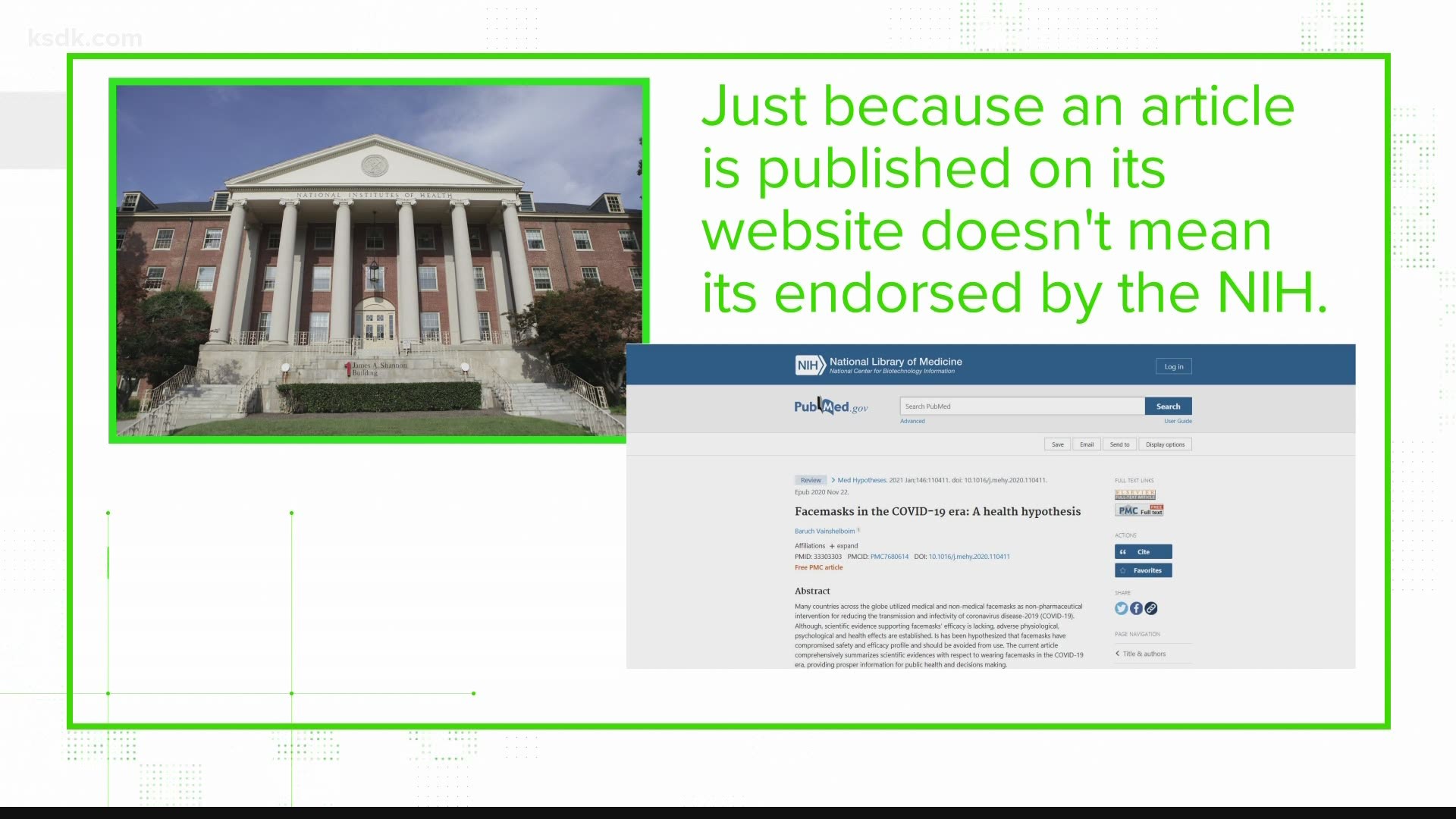ST. LOUIS — A 5 On Your Side viewer saw a study online titled "Facemasks in the COVID-19 Era: A Health Hypothesis.”
It claims masks are ineffective at stopping the spread of COVID-19 and can actually be harmful.
The study's lone author, Baruch Vainshelboim, claims he is in the cardiology division of the Veterans Affairs Palo Alto Health Care System at Stanford University. The paper can be found on the National Institutes of Health website.
Question:
Is it true a study that found masks to be ineffective and harmful was backed by Stanford and the National Institutes of Health?
Sources:
Stanford University
The NIH
The journal that published it, called "Medical Hypotheses"
The publisher, Elsevier
Scientists whose work is referenced in the article.
The paper created enough buzz that Stanford tweeted the author has "no affiliation with the VA Palo Alto health system or Stanford at the time of publication." The university has asked for a correction and said "Stanford medicine strongly supports the use of facemasks."
NIH has a disclaimer on its website saying just because an article is published on its website doesn't mean it's endorsed by the NIH.
The article was included on an NIH website, but that's not the same as being an NIH study.
It means the publisher offered to submit the article to PubMed Central, the database of medical literature found on the NIH website for people to read.
Plus, "Medical Hypotheses" retracted the article earlier this year and the editor-in-chief apologized.
Answer:
False
This study, which claims masks are ineffective and can be harmful is not backed by Stanford and the National Institutes of Health.
The Verify team dug even deeper when we saw the article summarizes other research.
The author quoted researchers at the American College of Sports Medicine and the University of Hong Kong. They told us they don't support the paper.

